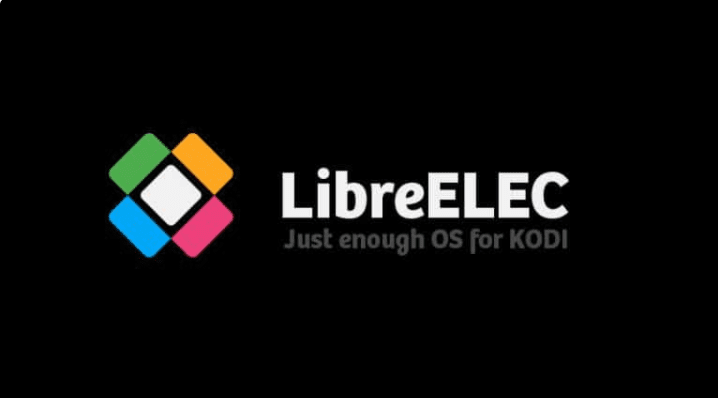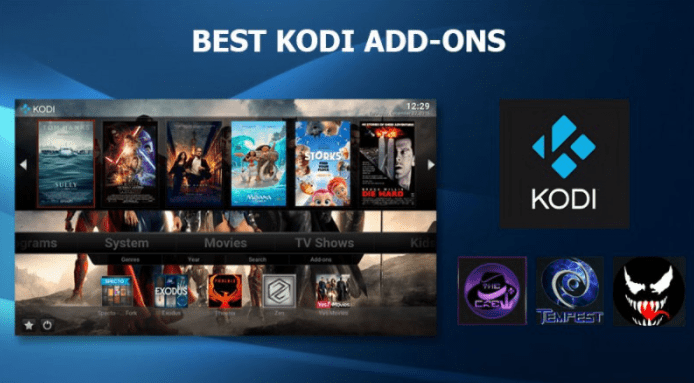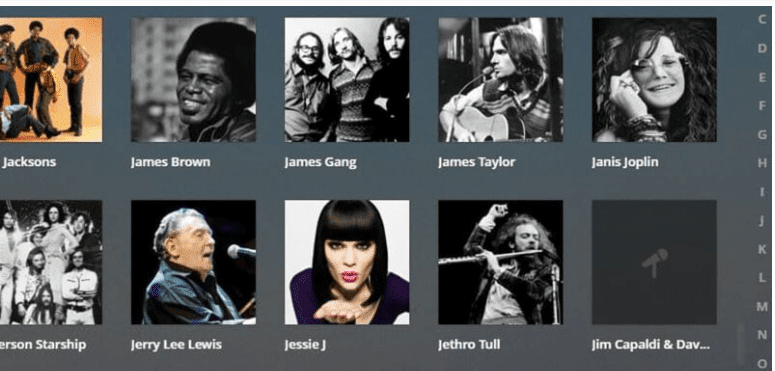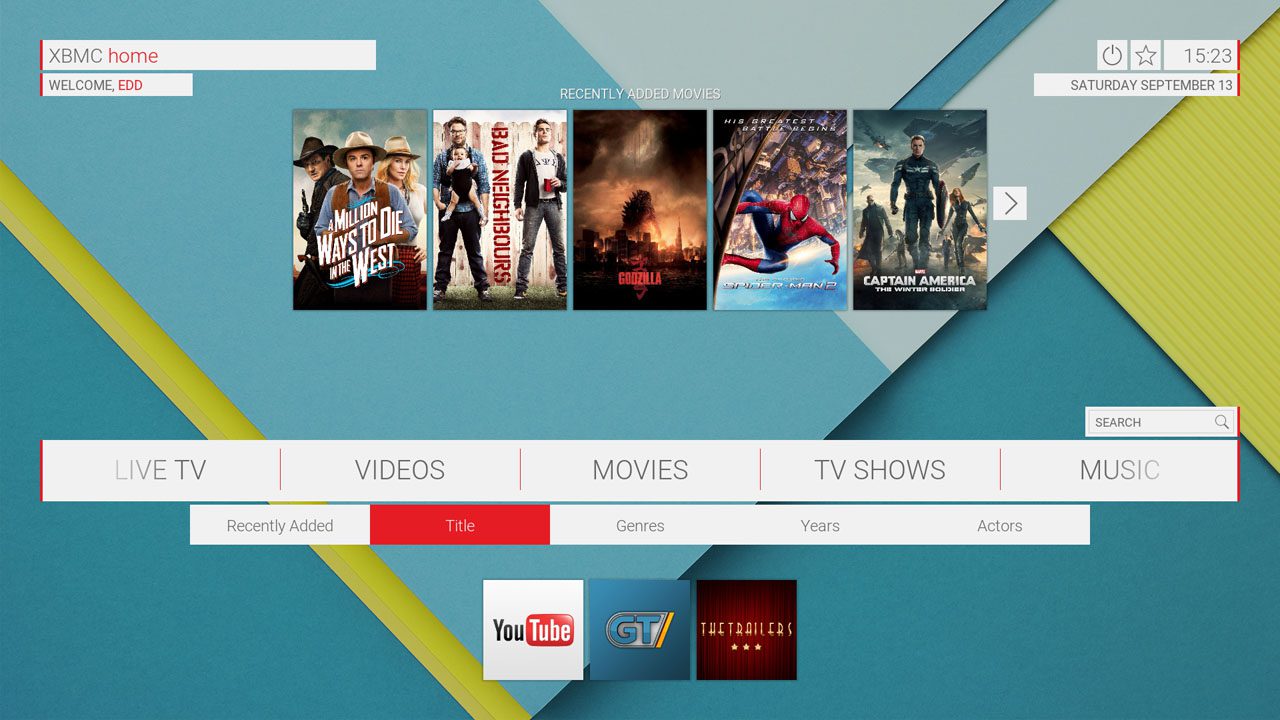Kodi and Plex are two of the most preferred media center platforms globally. Kodi won out five years ago, but did it really take over the market, or is that just an illusion? Plex has a legion of loyal users that love it while there is a wave of new fans coming on board every month. Keep reading to find out their main differences, strengths, and how we can compare them!
Kodi vs. Plex
Which one should you opt for? Ride along with us as we show you in detail the differences between this two streaming software.
Playing video and music
Concerning playing video and music, both Plex and Kodi can play videos and music via your TV, tablet, PC, or phone. Besides that, they both support an extensive range of formats and offer 4K and High Definition (HD) quality output. Where the difference comes into place is how they deal with file format conversion, well-known as transcoding.
In simple terms, transcoding is an undertaking that transforms a video or music from one format to another on the fly. Some streaming gadgets have unique chipsets that allow them to faster operate with specific file formats. That means that you can skip a movie or song without any delay.
From our point of view, Plex’s transcoding options are one step ahead as it supports hardware acceleration on the server, so even though your processor is sluggish, Plex is still more than competent to run a transcode without pausing your device or buffering in any way.
On the other hand, Kodi’s transcoder is open-source, making it compatible with an extensive range of file formats. However, it lacks configuration options, so you may, in some instances, find that your files fail to play at all, leading to the introduction of software like Handbrake to help in converting files to a different format.
Either of the software suites will complete the job for you. But if you search for on-the-fly transcoding software that will ensure your videos can play on a vast range of streaming devices, Plex is not that perfect, but it is a lot better.
Device compatibility
So that you know, Plex’s greatest strength is its compatibility energy with every streaming gadget under the sun, not forgetting Mac, Android, Windows, and iOS. Let alone the compatibility features, it also has official releases in all of the app stores, and it is effortless to set up.
On the flip side, Kodi suffers from its image as a piracy enabler. For example, it is not cataloged in the Amazon Fire app store and must be manually set up on Fire Stick and Fire TV devices. The same is verifiable for Apple TV, Roku devices, and iOS devices.
However, that does not mean that Kodi cannot be installed on the platforms mentioned above, but it does make it a hassle. We believe that is ideally what makes Kodi a poor choice for several users, and it is just another occurrence of Kodi in need of more configuration than Plex to carry out akin stuff.
Kodi is excellent when set up on devices that directly interlink to your TV. It has well-supported and official hardware from an Android TV device manufacturer called Minix and a custom pi machine image called LibreELEC that makes Kodi functionality smooth and quick to get it running on your Pi device.

Libreelec
To append on the Plex’s broad range of support for streaming devices, there is one platform it sticks out on. If you happen to possess an NVIDIA shield, it is a flawless device for your Plex server. As you know, NVIDIA has hardware support for 10-bit HEVC video, a regularly utilized format for ultra-high-definition 4K videos. Therefore, that means that you can watch 4K quality videos on your television and stream the same 4K content to other gadgets without struggling.
Shared files
Each program oversees your collection/library of downloaded videos and music quite peculiarly. In Kodi, your collection is not shared to other devices by default. In Plex, your collection is spontaneously made available to each device interlinked to the central server. The contrast in collection/library is one of the most significant differences between this software.
In practice, Kodi is usually convenient to media center PCs or Pis that interlink to your television via the HDMI port. Then again, it is simpler to set up its deployments when they stand alone.
On the other hand, Plex is much atypical, with your collection of videos and music shared by default to any streaming device logged in to your account. That, in turn, makes it a well-suited choice if you want to take your media on the go or rather have more than one screen in your place that you would love to stream on.
But, that does not mean Kodi won’t function with shared libraries/collections, though, or that Plex software is only better for situations where you have numerous devices.
Kodi has limited ways to share your library and set it up right into the software’s core. Several users select between SMB sharing or UPnP; however, Kodi supports MySQL libraries. It is critical to remember that all these take some additional configuration to get them up and running, but all or any of them can be made functional.
Comparably, it is perfectly feasible to set up a Plex server on your Pi, Android device, or media center PC and directly connect it to your TV with HDMI.
But in general, Kodi should be contemplated as standalone streaming software, while Plex, on the other side, is a dedicated streaming media server that supports remote clients.
Add-ons
When it comes to add-ons, Kodi is well-known for its countless and different add-ons. You can install everything from YouTube and Crunchyroll to movie channels and even an official Plex client. That flexibility just is not matched by Plex in any way.
Contrary to Kodi, Plex offers official channels for most major broadcast and cable networks. These authorize you to access their on-demand content without a cable subscription, allowing you to stream from the web rather than downloading videos directly.

add-ons
For all their flexibility functions, Kodi add-ons can be hit-or-miss. The most famous add-ons commonly violate copyright rules, and most of them end up being shut down entirely from time to time. On the other side, Plex has fewer channels, most officially accredited. Kodi also has an extensive range of “official” add-ons, even though most of its add-ons are not “official” the same way. Instead, they scrape the webs of well-known services in a way that does not violate copyrights. Although Perfectly legal to use, few accredited Kodi add-ons are designed and offered up by content providers.
However, there are exceptions for Plex. For example, you can utilize the web tools channel to set up unofficial content on Plex. And Kodi has sanctioned add-ons that allow you to watch video from networks like ESPN.
In comparison, both programs allow users to install custom content, but Kodi has a clear age in the expanse and sheer usefulness of their add-ons.
Library management
Both Plex and Kodi utilize metadata to present your music and videos in the best way practicable. They spontaneously search albums, episodes, and movies so they can give cover art, ratings, and summaries. Instead of seeing a bare list of files to stream, both programs provide an interface comparable to Netflix.
In practice, Plex edges out Kodi. This is because they pay for a license to the complete media DB on the web. With Plex, you will always perceive the official artwork and complete info, down to a list of actors who worked on the project. On the other side, Kodi uses a free alternative, which can be hit or miss; despite that, it has been improving continuously but at least not yet there as of now.

library
Then again, Kodi cannot keep pace with the way Plex runs vast libraries. Plex scrolls smoothly and shows album covers in real-time, even with ten of thousands of songs and stuff on your album. Unfortunately, Kodi is much irregular and sometimes freezes up a few times as you scroll through the entries.
Concerning library management in Kodi vs. Plex, we believe Plex comes as the winner.
But still, Kodi’s strength is customizability. If you are patient and can create an SQL DB encompassing all of your media, Kodi can work like Plex. But it is challenging to get the same level of performance as Plex offers its performance by default compared to what you manually want to create in Kodi.
Platform availability
When you turn your attention to media players, availability is a critical feature that you don’t want to compromise. Ask yourself, what is the point of files in a media player if you cannot access it on almost all your devices in your reach?
The encouraging news we have for you is that Plex is a cross-platform software available on nearly all platforms you can imagine. From iOS and Android to more niche OSs, e.g., Roku OS and Apple’s tvOS, it is even available as a Kodi add-on.
But what about Kodi? It is entirely safe to say that this open-source media player can’t quite match Plex in the platform department, as it offers a brief list than Plex. In some cases, you will have to follow a complex workaround to set up the application on your preferred platform. For instance, Kodi is available in platforms like iOS, but it requires XCode and mac to do so, making it a difficult option for users who lack one of the two requirements or both.
It is undeniable that installation challenges vary, with most platform application stores not presenting the ability to download Kodi natively, and even with a supported platform, the chances are that you will have to download the installer through the official Kodi website manually.
Only Google play offers the ability to install and update Kodi natively.
User experience

Plex User Interface
Plex has an outstandingly beautiful and clean interface that is ridiculously user-friendly. From the home page, you can tell the multiple options like TV shows or movies and content recommendations that help even a newbie to navigate through easily. You will see your content simplified into classifications like music, movies, podcasts, TV shows, and many more from the sidebar. It is well organized, easing your navigation through what you are looking for at a glance.
Everything smoothly flows with Plex, and it even reminds you where you last left off in a song or video, so you can exactly resume. It also uses colorful images, logical organization, and clean labels to make it a trouble-free software.
Kodi’s interface of the other side is clean and straightforward too. The Home screen is well arranged, with labels for games, TV shows, photos, music, videos, add-ons, and many more options on the sidebar. Kodi is also packed with many features and options, but you will have to waste some resourceful time digging via menus to find all of them.
Noticeably, Kodi’s player is also plain by default. Nevertheless, with all of its powerful options, it would not be difficult to find and apply a skin you are fond of or customize other aspects, though it will take some time.

Kodi with Unity Skin
With its upfront focus on customization instead of immediate simplified use, Kodi may seem less user-friendly than Plex, especially for newbies. Nonetheless, that is precisely why it is far more user-friendly in the long run for those users who appreciate deep customization options and at least know how to tweak and adjust them.
Which one should you use?
From the comparisons above, you can see the two media center apps give the same basic functionality, but there are also significant differences between them. Take a look at the below-summarized points that should be considered when selecting the application you need.
If you want the following, Plex will be the best option for you:
- Compatibility for your devices.
- To have professional online support.
- Access to your media from numerous devices.
If you want the following, Kodi will be better for you:
- Access to your media from one device.
- More customization options to fine-tune every single feature.
- Free software without spending on extra features and services.
- The selection between many add-ons that offer access to a lot of content.
Conclusion
As you can see, in the online streaming community, the Plex vs. Kodi debate is a scorching topic to handle. But the fact remains that neither solution will be superb for every single user. While Kodi makes up for their contradicting configuration and lack of official support with complete freedom and flexibility, Plex, on the other side is simpler to use and works with multiple devices. Still, you have to incur some costs to get the whole experience.
Our opinion on these two tends towards recommending Plex. We think the free version has more than needed features to be usable, and we appreciate the fact that it can stream videos and music from lots of devices without measure. With that said, we hope you found this article informative.
